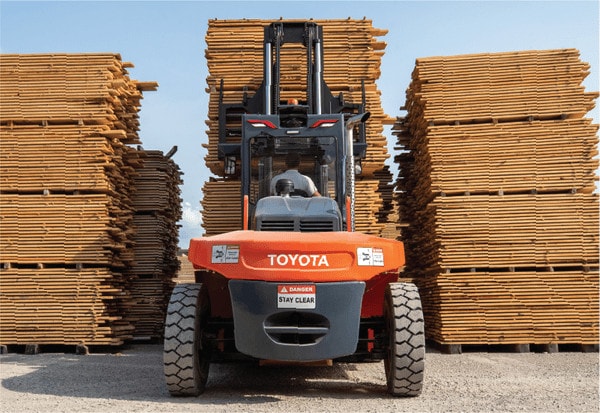
If you have ever used a forklift, you know that the tires take the brunt of the wear and tear when on the job. Forklift tires do more than help move the forklift from point A to point B, they also help cushion the rider as well as keep the forklift steady and problem free.
When you are dealing with a machine that weighs 10,000 lbs. or more, you need a tire that can hold all that weight and any materials it might be carrying. This means that the tires must be well made. As you may know, forklift tires work very differently from car tires. Since forklifts are very heavy, they do not have a suspension and rely on their tires to do all the cushioning. They keep the forklift from being damaged from any rough bumps and keep its mast and undercarriage from hitting any protruding ground debris. Forklift tires also get better traction because of their weight, so a smooth cushion tire will give you a better grip than a pneumatic tire on a smooth surface because the entire surface of the tire touches the surface while you are driving.
Here are the common types of forklifts tires options available. Let the experts at Industrial Tire Service help you to select which ones best suit your needs.
Types of Tires
Cushion Tires
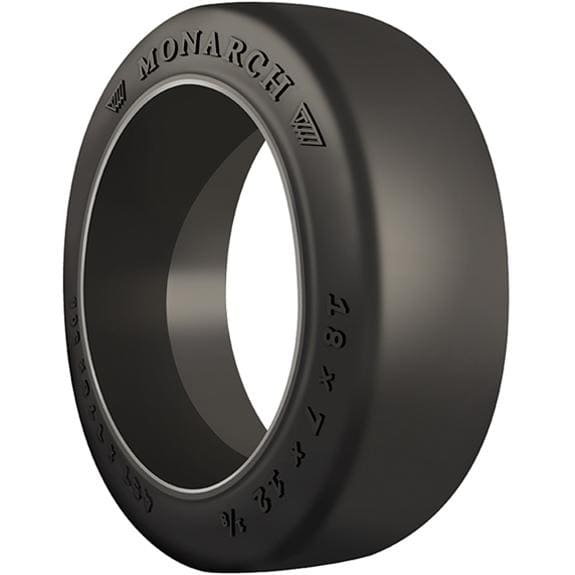
Cushion tires are solid rubber tires that are vulcanized onto a base ban that is in turn pressed onto the rim of the wheel. They sit low to the ground and offer the best maneuverability, better lifespan, and better grip on smooth and paved surfaces such as concrete and asphalt.
Use Cushion tires with paved surfaces both indoor and outdoor when possible.
Pneumatic Tires (Air Filled)
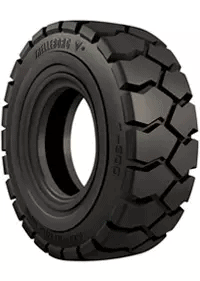
Pneumatic tires are air-filled tires used for indoor and light outdoor uses. They are cheaper than Solid Pneumatic tires because they are fabricated using less rubber. This means they will have a shorter lifespan. Although they resemble car tires, they are not recommended for outdoor use with rough terrain or debris. Forklifts are very heavy and Pneumatic Tires are more susceptible to punctures, meaning that you may need to repair or replace the tires more frequently.
Solid Pneumatic Tires
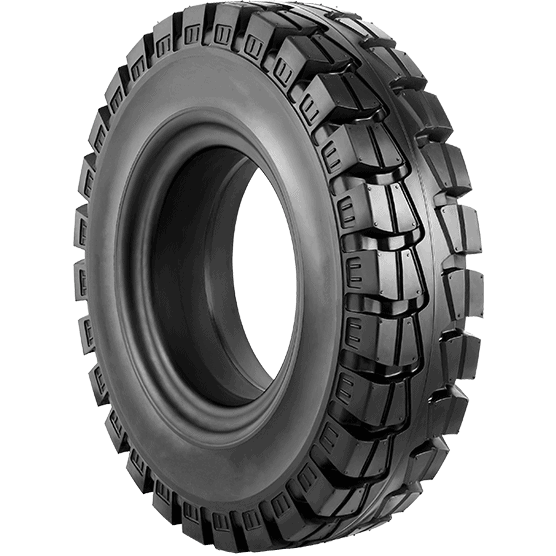
Solid Pneumatic tires are best used with outside, uneven surfaces where you need extra grip strength on loose gravel or sand. Due to the uneven wear and tear of the ground surfaces, Solid Pneumatic tires do not have the same lifetime as a cushion tire. They also do not have the same maneuverability as Cushion tires since they need a wider turning radius because of their larger size.
Tire Type Comparison
This is a general comparison between the different tire types. This chart assumes that the majority of the working time will be in these areas. Lifespan, durability, and cost will depend on application and usage.
| Tire Type | Indoor | Light Outdoor | Rough-Terrain Outdoor* | Debris in Work Area | Lifespan | Durability | Cost |
|---|---|---|---|---|---|---|---|
| Cushion | Yes | Yes | No | No | High | High | $$ |
| Pneumatic | Yes | Yes | No | No | Medium | Medium | $ |
| Solid Pneumatic | Yes | Yes | Yes | Yes | Medium | High | $$$ |
*Only for flat, unpaved terrain such as gravel, dirt, or small rocks. Terrain with larger obstructions will require special rough terrain forklifts built specifically for these conditions.
Special Tire Compounds
Non-Marking Tires
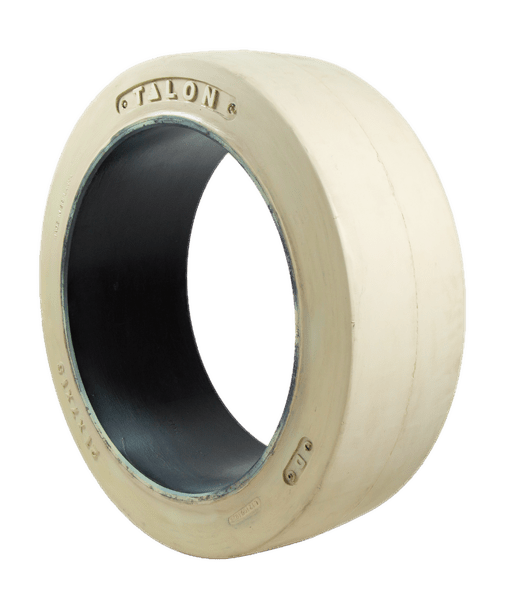
Non-Marking tires are made with a non-carbon rubber, which allows for less marking on a finished surface. These tires are used mostly for indoor applications in sensitive environments, such as food, paper, or electronics, that require a clean environment with minimum micro-debris.
Polyurethane Tires
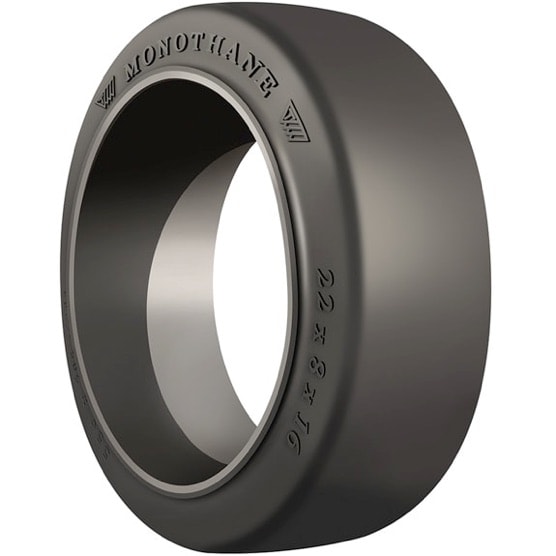
Polyurethane tires are harder, long lasting, non-marking tires that provide little to no cushion. Because of their durability, Polyurethane tires may require fewer replacements. They provide less cushion, which may be perfect for small, indoor applications. You will mostly find these tires on standup rider forklifts, order pickers, and walkie pallet trucks and you may also see them on sit-down forklifts that are in warehouses with smooth cement flooring.
Application Recommendations
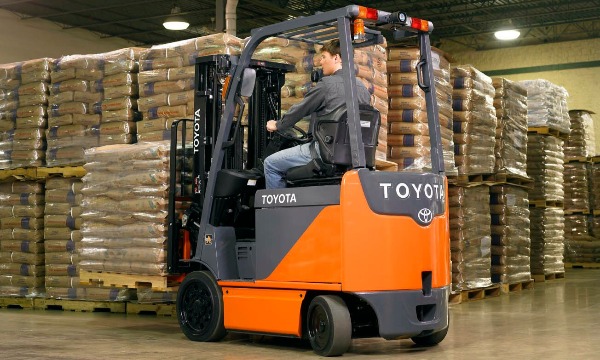
Indoor Applications
If you have an indoor application with no debris on the floor surface, we recommend cushion tires. In this environment, cushion tires last longer, provide increased maneuverability, and improved traction.
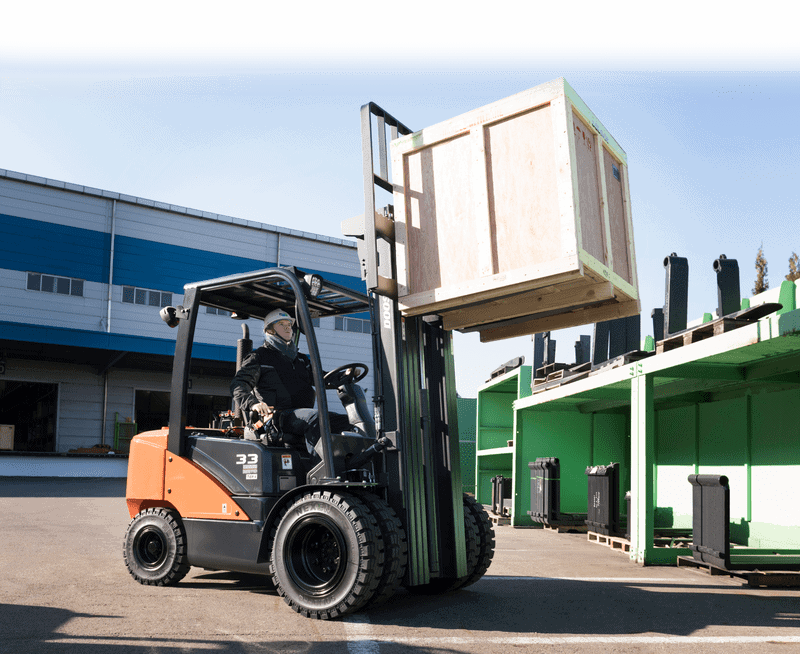
Light Outdoor Applications
Light Outdoor applications with smooth paved surfaces such as cement or asphalt are best with cushion or air-filled pneumatic tires. These tires give you the best bang for your buck if you only expect to use them on these surfaces.
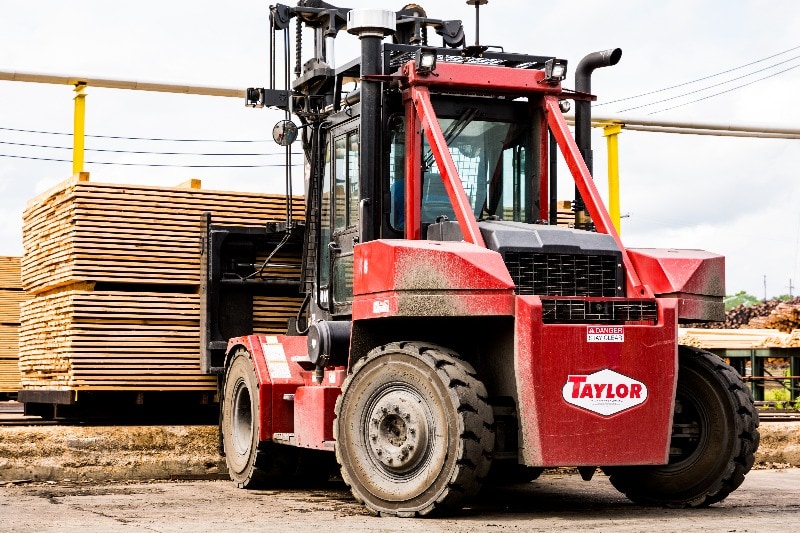
Rough Terrain Applications*
Rough Terrains require more surface area and grip so it’s best to use solid pneumatic tires here. They are bigger tires that have a larger surface area to distribute the weight of the forklift to give you a better grip on unpaved surfaces. If you expect to move on both paved and unpaved surfaces, then solid pneumatic tires may give you the best all-in-one application package.
*Only for flat, unpaved terrain such as gravel, dirt, or small rocks. Terrain with larger obstructions will require special rough terrain forklifts built specifically for these conditions.

Warehouse Applications
Applications, such as warehousing, that frequently use order pickers will often use polyurethane tires. In fact, order pickers exclusively use polyurethane tires. They last longer than rubber tires and you will not need the extra cushion that rubber provides on these smooth concrete surfaces. Remember to keep your floor surfaces clean as these tires do not do well with obstructions and debris.
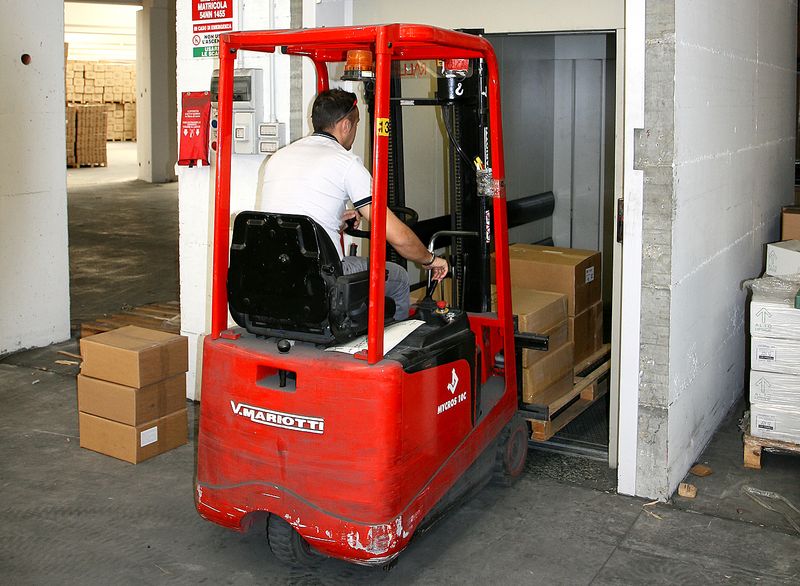
Cold Environments
Cold environments or environments with consistently wet floors typically use polyurethane tires with micro grips (small, raised dots) or razer sipes (narrow, diagonal grooves) since they provide increased traction and braking ability.
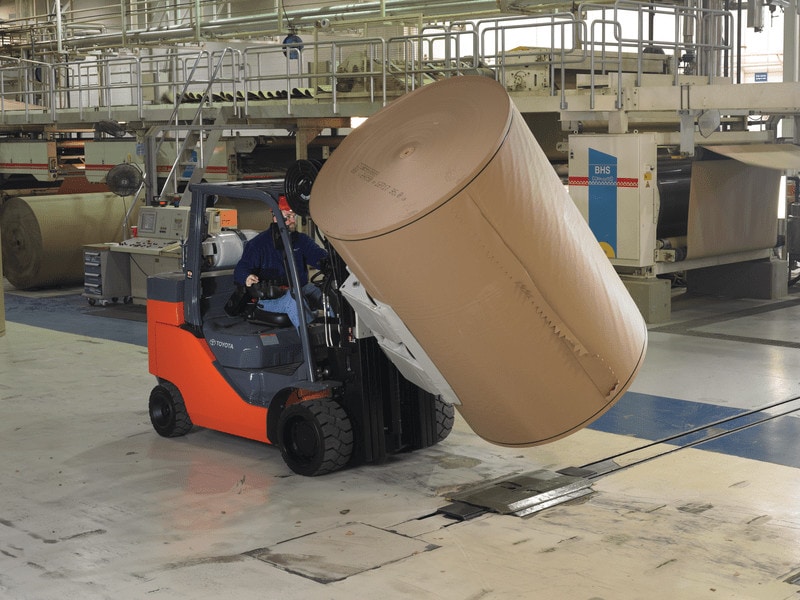
Sensitive Applications
Sensitive applications, such as food, paper or printing often require non-marking tires. Standard tires contain carbon black, which creates a fine dust particle during use that can cause cross-contamination issues.
One other important note: when changing tires, it is recommended that you change both the left and right tires at the same time. This will protect your forklift investment. While your first instinct may involve wanting to save money, an unbalanced forklift is prone to tipping or slipping while under heavy load. This may lead to injury to the driver and nearby employees, as well as damage to your product.
Let the experienced team at Industrial Tire Service help you choose and install your next set of forklift tires. With our mobile tire press, we can change the tires right at your business, getting your lifts back to work faster. Contact us or give us a call at 203-806-7805.
